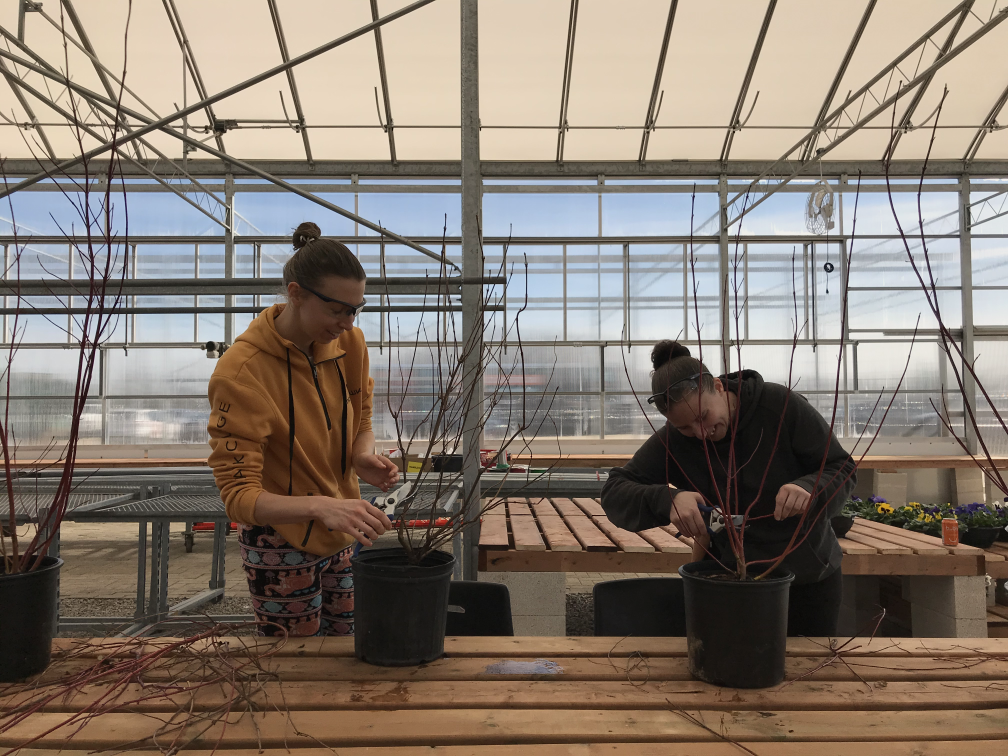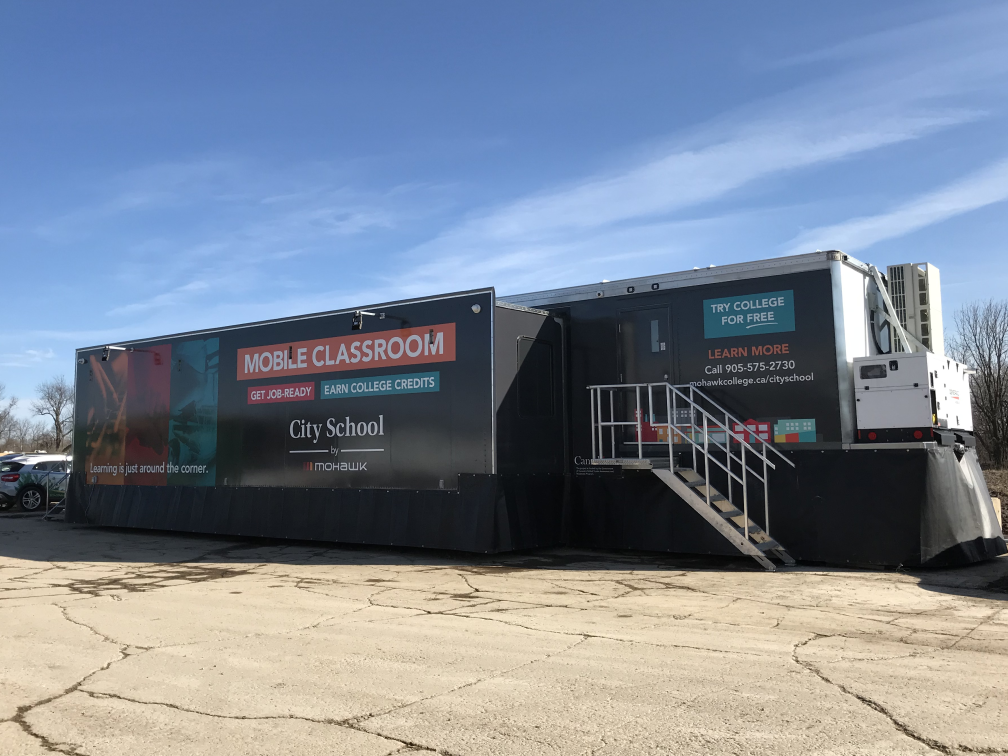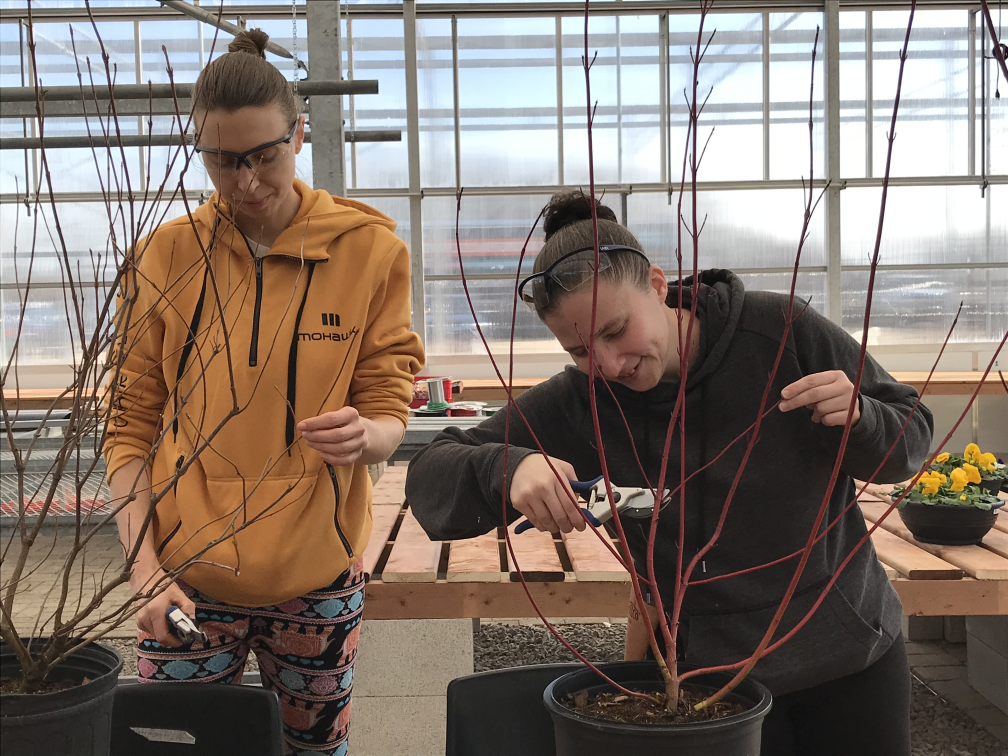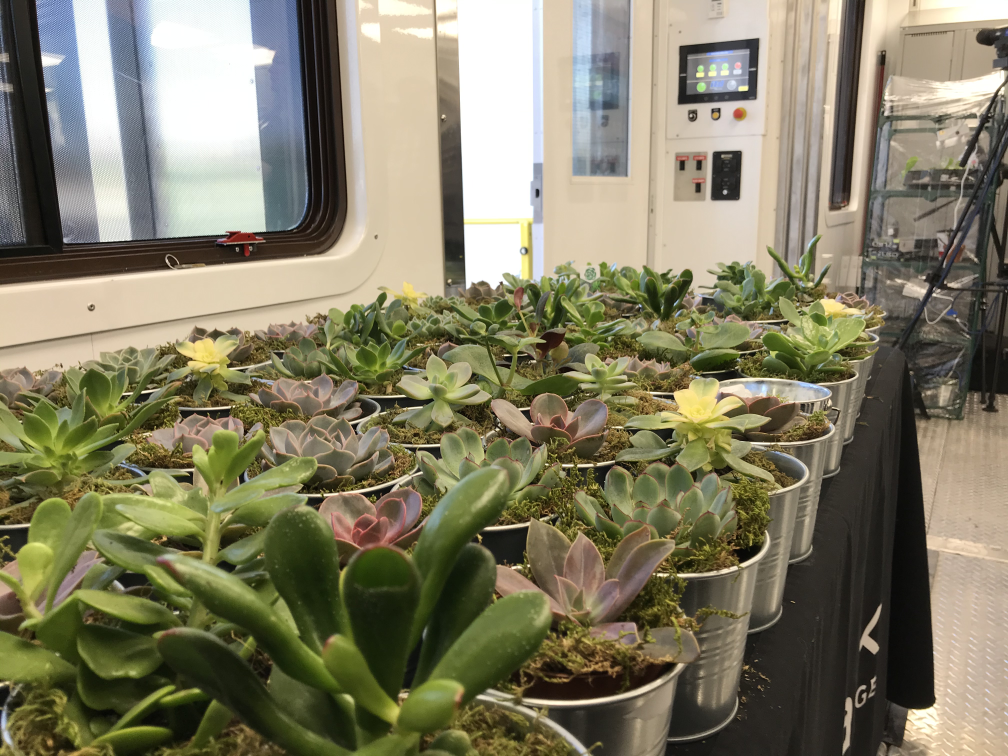Mohawk College‘s second mobile classroom has officially opened its doors in Hamilton, Ont.

The college’s City School program first opened in 2017, moving around the city to provide free college credits and skills training to those who face barriers to getting a post-secondary education.
The newest unit will be based at Fora Outdoor Living in Ancaster for the next few months, preparing students for a career in the horticulture industry.
After that, it will move to the McQuesten Urban Farm in Hamilton’s east end, followed by Heddle Marine on the harbourfront for a program focused on shipbuilding and maintenance.
Jim Vanderveken, dean of Mohawk’s Centre for Community Partnerships and Experiential Learning, said they also have plans to connect with the healthcare sector through City School.
Right now, he said they’re working with Thrive Group, which manages several long term care homes in the city, including Idlewyld Manor and St. Peter’s Residence at Chedoke.
“They’re actually looking at how can they create some space at one of their facilities so that individuals can begin to learn the skills and competencies related to the personal support worker occupation,” said Vanderveken.
“There’s a tremendous demand for personal support workers in our community, both in long term care facilities and hospitals, and the private care setting.”
“So we’re actually going to be looking at locating one of our mobile units there so that we can begin to do some health care training as well.”
So far, 220 students have received free training in welding, HVAC and general construction through a City School mobile classroom — many of whom have gone on to study at Mohawk or work in their chosen field.

Marty Verhey, who has worked with City School on behalf of Walter’s Group for the past decade, said the program is the most valuable way that companies can find new talent for any trade.
“Skilled trades are found in pockets of talent right in the neighbourhoods around us,” said Verhey. “I think there are challenges that some of the folks face in terms of getting out and getting a job. Because the jobs are there. I think that they don’t feel qualified at times. They don’t have the means to learn new skills. There’s no opportunities to explore options. There’s no mentors that they can receive guidance from. And the list goes on.”

Get breaking National news
Those barriers, Verhey said, are broken down by the City School model.

Two students of City School’s horticulture and landscaping program, Marika Reed and Natalie Page, said it was the lack of barriers that convinced them to sign up for the course.
“I wanted to retrain, I studied physics before, and I want to go into something more green and environment based,” said Reed. “I was ill for a while, and I didn’t have — don’t have — the funds, really … I wanted to taste something so that I knew, if I’m going to spend a lot of money something, I want to make sure it’s the right thing.”
Page said she’s also been ill and hasn’t worked since 2015, which has made it difficult to pursue post-secondary education or a new career.
“I have Lyme disease, so I’ve been quite sick,” said Page. “I haven’t been able to do anything, so I’ve been trying to get myself out into the world, doing something, and I found this.”
“I love plants. It’s actually been my saving grace. When I’m having a really bad day, I just go plop myself out in the garden, and so I figured this would be a really good thing for me to get out and do. And I’ve just been loving it.”
Once her daughter graduates high school and heads to college (Mohawk, for social work), Page said she and her husband plan to move north and start their own sustainable living business. She said this City School course is a starting point on that plan.
Reed is also hoping the City School program will help her interests in conservation, sustainable living and Indigenous culture as she explores a new path.
“Along with horticulture, I think there’s a lot of fertile — excuse the pun — ground there, maybe, for new techniques for re-greening polluted areas, making places better for humans and wildlife, and understanding more about ecosystems that we have, and making sure we look after them.”
Both Reed and Page had two words for anyone considering the program: “Do it.”
- ‘Something just went off’: Canadians in Middle East describe ‘surreal’ Iran missile strikes
- ‘At first I cried’: How Iranian Canadians are reacting to the U.S. strikes in Iran
- Khamenei’s death met with ‘jubilation’ among Iranian-Canadians: Liberal MP
- Carney and India’s Modi strike new energy partnership
“There are no barriers that they won’t figure out for you,” said Page.
Reed echoed the sentiment, saying she’s surprised there aren’t more programs to help people who want to change their career but don’t have the ability to drop everything and pursue the necessary education or training.
In addition to the two mobile classrooms, Mohawk’s City School also runs courses at the Eva Rothwell Resource Centre, the Central Public Library, and a variety of pop-up locations, including the Hamilton Regional Indian Centre and Mission Services of Hamilton.
The program is also a major part of Challenge 2025, which is Mohawk College’s five-year plan to tackle poverty in Hamilton through education.












Comments
Want to discuss? Please read our Commenting Policy first.